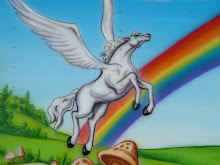Literature deals with these questions in a very simple manner. The good characters are always the main characters, and the impression that the author of the book wants the audience to see these characters as “good”. Therefore the author may portray them as a super hero, somebody that does “good” in the world, somebody that puts others before themselves, etc. Also the good characters are usually the ones that try and stop the evil characters from doing evil things. In literature the evil characters are usually heartless, the villain of the story, and usually just cause a lot of unnecessary problems. The evil characters only care about themselves and don’t care about anyone else.
Literature doesn’t usually want the audience or reader to determine whether or not the character is evil or not, so in other words they don’t want it to be subjective, they want it to be a universal truth. Therefore what ever the author wants the characters to be is what the characters are going to be; so they basically make it a universal truth on what the “good” characters are and what the “evil” characters are, even though you may have your own opinion on them and may see them differently. In literature their usually are clearly defined roles; which means there really aren’t any discrepancies to whether or not the character is “good” or “evil.”
As to whether or not evil characters can engender sympathy or not is really up to the author of the story. Most pieces of literature do in fact have evil characters that can in fact engender sympathy, and in others they are pure evil, and don’t engender sympathy even the slightest bit. The same goes for “good” characters; they can in fact engender judgment for being seen as “evil,” but the likely story is that most “good” characters are usually “good” throughout the entire story, and they don’t really show great amounts of evilness.
In the novel “Perfume” at the beginning of the book for the first few chapters this character named Grenouille was seen as neutral, so you couldn’t really tell if he was “Evil” or “good” it was pretty uncertain, although you were given some clues to what was to eventually come. Although in this one scene he kills this poor innocent girl just to inherit her scent, and when he gets back to his closet where he lived, he said that he had never felt happier in his life, he couldn’t even recall what the innocent girl he killed had looked like all he could think about was her scent. It was as if killing this girl was not even an issue, this character literally felt nothing at all. Therefore this “evil” character didn’t engender sympathy at all, which makes him pure evil.
Subscribe to:
Post Comments (Atom)

No comments:
Post a Comment